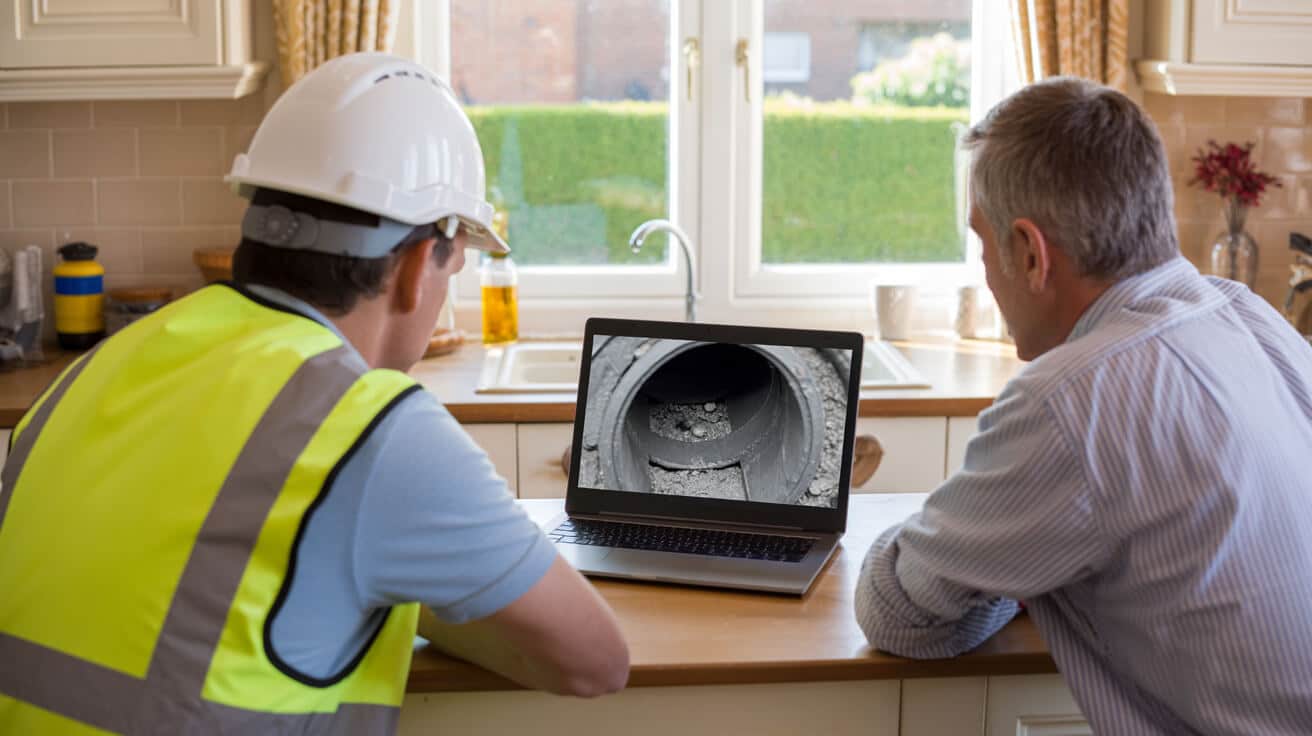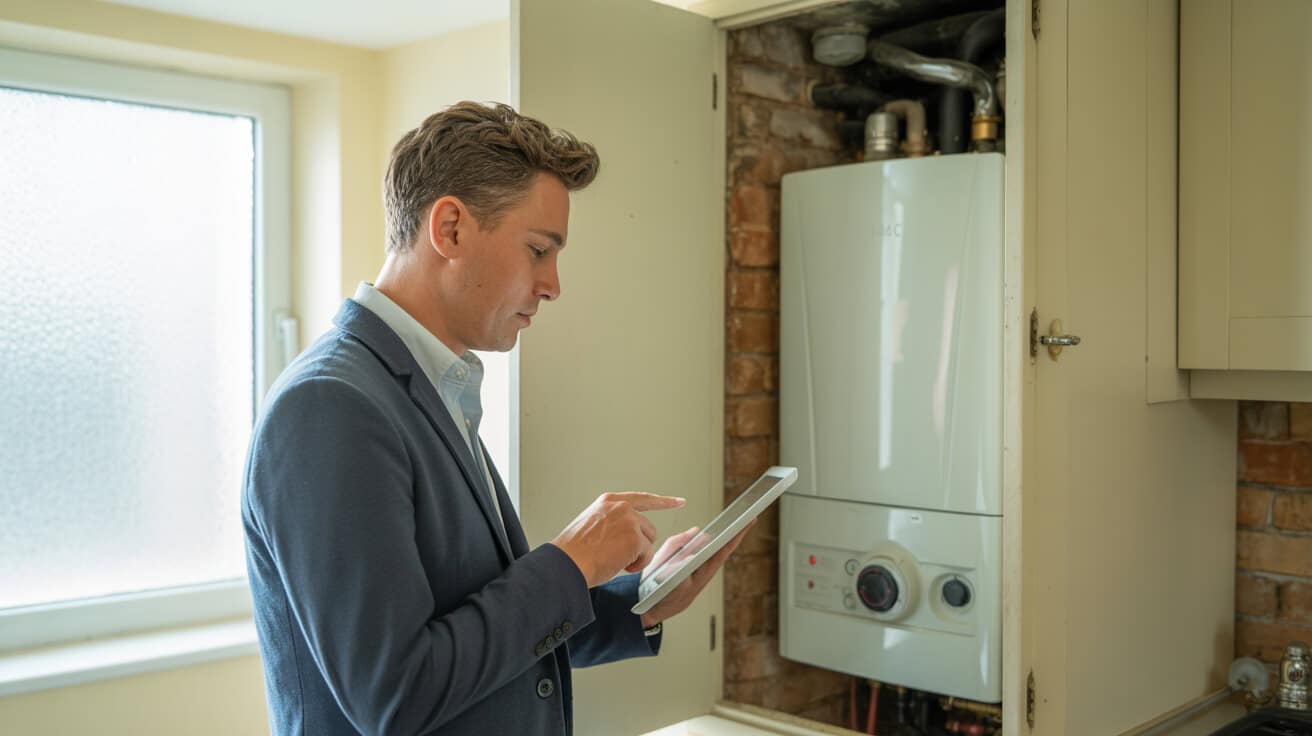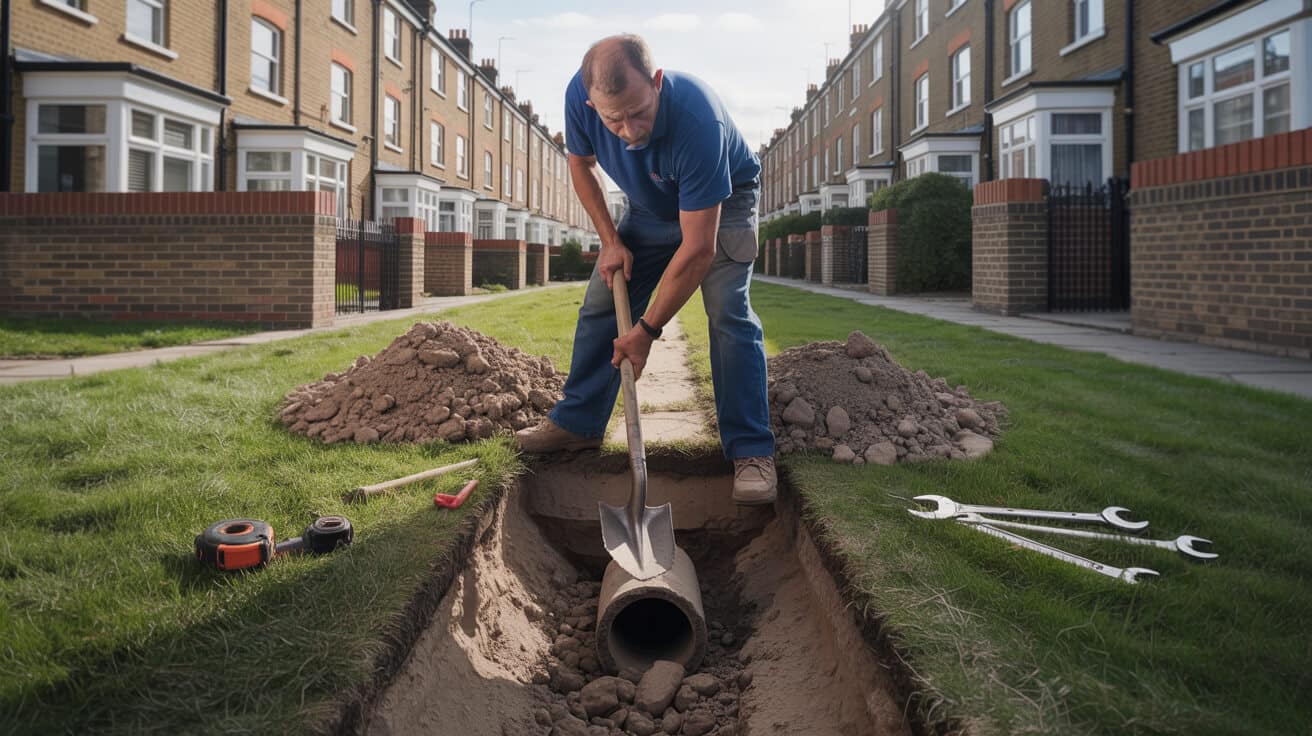 7 Signs Your Boiler Needs Servicing
7 Signs Your Boiler Needs Servicing

Is Your Boiler Whispering Warnings Before a Breakdown—or Are You Missing the One Step Even Diligent Owners Overlook?
When a boiler works as it should, it’s invisible: quiet, efficient, and never intruding on your day. But silence never means invincibility. For homeowners, landlords, letting agents, block managers, and business property owners, boiler safety isn’t just about compliance or low energy bills—it’s your line between hassle-free living and an expensive crisis nobody sees coming.
modern boilers don’t just quit—they communicate. Every rattle, lukewarm shower, or recurring pressure dip is a coded message about the health of your system. What trips up even responsible owners? Ignoring those signals until a full-blown failure shocks the budget, the compliance log, or (worse) the people who depend on you.
Your boiler isn’t background noise—it’s the system that quietly decides your costs, your comfort, and your legal standing. Don’t let small signals become tomorrow’s big regret.
Plumbers 4U has built a service around catching what the average eye misses. In every case, the difference between a trusted property and a problem asset is simple: who acts before chaos strikes, and who waits too long.
Why Boiler Noises and Radiator Clatter Are Never Just a ‘Quirk’—Your System’s First Alarm

That odd clunk in the evening, the faint hissing you ignore in the kitchen, or pipes that tick every time you adjust the thermostat—these aren’t harmless quirks. They’re the first round of messages from a system that wants your attention.
Understanding What Those Sounds Really Mean
A properly designed, balanced heating system is nearly silent, even when working overtime. the moment noises crop up—knocks, steady hissing, or rhythmic clicks—you’re looking at early warning flags: trapped air, mounting limescale, or a circulation pump tired of fighting grit. Reliable as it seems, your boiler isn’t immune to internal decay, and “noisy now” often predicts “broken” by winter’s end if left unchecked.
Common triggers:
- Startup knocks: Indicate expansion issues, loose pipe supports, or “water hammer.”
- Persistent hissing: Often air in radiators, sometimes a sign of internal pressure issues or failing bleed valves.
- Chattering or ticking: May reveal sludge restricting flow or even failing thermostat valves (TRVs), especially in multi-unit buildings or older systems.
The first clank or hiss you ignore is the system’s way of saving you from a £300 repair two months later.
Why Action Beats After-the-Fact Repair
Book a “peace of mind” service at the first blush of persistent noise. Engineers from Plumbers 4U don’t just patch the symptom—they hunt down every potential cause, from limescale caked inside the heat exchanger to worn bearings in zone pumps. Every quiet system stays efficient longer, saves you from callout premiums, and—crucially—keeps compliance (and tenant confidence) on side.
If you manage flats, offices, or busy family homes, ignoring recurring sounds piles risk onto your reputation and bottom line. Modern compliance checks—especially in rental and commercial environments—flag repeated system failures as much as major breakdowns. In service history, what sounds minor often becomes the cause of denied warranties or failed EPC assessments.
Is Tepid Water or Patchy Heat Really a Small Issue—or the Symptom of a Looming System Fault?

A lounge radiator that won’t warm up, endless takes to get the bath to temp, or tenants comparing notes about fluctuating heat—ignore these and pay for it, one way or another. Uneven warmth goes right to the core of property comfort, but also signals deeper health concerns within your plumbing and heating setup.
The Real Culprit Behind Inconsistent Heating
- Sludge or Scale Build-up: Over time, every system captures metallic debris and calcium, creating dense patches in radiators or pipe runs. Flow slows, temperatures drop.
- Stuck or Corroded Valves: These might seem trivial, but when TRVs or zone valves stop responding, certain rooms never get warm enough—costing you energy and goodwill.
- Diverter and Mixing Valve Faults: Especially in combi systems, these failing parts account for many “why is my hot water intermittent?” complaints among tenants and staff.
Consistent heat output isn’t just comfort—it’s compliance. Current EPC and safety rules scrutinise system efficacy. A chilly bathroom in a rented flat or a cold back office in your business isn’t just grist for complaints—it’s a reason for fines or failed insurance claims.
If a room or tap is always the exception, it’s the system waving a flag—don’t ignore it and lose both comfort and compliance in one step.
A property serviced regularly by Plumbers 4U won’t just be warmer; everything from valve tests to sludge flushes will be digitally logged, protecting your audit trail, asset value, and—critically—tenant or insurance satisfaction.
Why Rising Bills Aren’t Just the Weather—How Unserviced Boilers Drain Your Profits and Protection

Energy prices can shift, but if your bills are on an upward spiral and usage is unchanged, look closer—your boiler could quietly be eating away at your profits. One hidden truth: even a professionally installed system loses efficiency every year without meticulous maintenance. That means more gas or electric goes up the flue for the same warmth.
What’s Really Stealing Your Efficiency?
- Heat Exchanger Fouling: Just 1mm of limescale can rob 7-10% of efficiency, making your system work harder for less output *(Able MK Boilers 2024)*.
- Sensor Drift: Thermostats and metering sensors slip out of calibration, meaning you run heating longer for smaller gains.
- Unseen Leaks or Blockages: Every undetected drip or constricted run means your boiler cycles on and off more, burning fuel and your repair budget alike.
Wasted kilowatts aren’t just a cost—they’re compliance failures waiting to surface at your next EPC or MEES review.
For commercial spaces and block managers, these invisible system slip-ups can make the difference between qualifying for grants or getting hit with remediation orders. Even a single missed service record means “no payout” on warranty or building insurance claims.
Here’s how escalating bills play out by property type:
| Stakeholder | Near-Term Impact | Compliance Downside |
|---|---|---|
| Homeowner | £120+ p.a. extra | EPC drop, warranty denial |
| Landlord/Letting Agent | £250+ recurring | MEES headache, rental hold-ups |
| Commercial Owner | Staff complaints | Failed energy audits, lost tenders |
Booking a full-spectrum Plumbers 4U service doesn’t just restore lost percentages—it locks in protection for resale, letting, and budgeting for your next year.
Do Pilot Light Flickers and Frequent Resets Signal Something Worse—And Can Your Warranty Survive Them?

Many owners dismiss an occasional reset or wavering pilot as “just one of those things.” But in today’s compliance environment, repeated lockouts, warning codes, or flickering lights are more than a hassle—they’re written evidence you’re ignoring a potential safety or legal pitfall.
Why Repeated Boiler Fails Are a Red Flag
Behind every “reset” hides a diagnostic storey: incomplete combustion, blocked flues, sensor faults, or pressure issues. And insurers, manufacturers, and compliance officers in the UK are clear—annual service is the non-negotiable line for valid claims (boilercentral.com).
- Skip a service?: In most contracts, any repairs, replacements—or even safety investigations—can be kicked back as “owner error.”
- Multiple resets?: A sign of mounting internal faults, not “bad luck.” Every service log you miss becomes another reason for cover to be denied.
Every reset or unexplained code not only risks comfort—it puts your insurance standing and legal compliance in play.
Landlords especially: CP12 and servicing records are often the first request after a heating-related complaint, letting application or incident. Plumbers 4U logs every fix, every inspection, and every reset source—protecting you at the moment you need it.
Are Hidden Pressure Drops, Leaks, or Stains Quietly Compromising Your Asset—and What’s Really Happening Inside Your System?

Pressure losses or the sight of fresh water stains tell a bigger system storey than most property managers expect. If you’re topping up system pressure regularly—or find unexplained damp near the boiler or radiators—it’s not just a maintenance “to-do,” it’s a system integrity fault escalating behind the scenes.
What Most Pressure Problems Reveal
- Failing Expansion Vessel: If the internal bladder can’t hold pressure, you’ll see repeated low-pressure warnings, frequent fill-ups, and, eventually, system shutdown.
- Dripping or Damaged Valves and Seals: Tiny leaks around valves or radiator connections become visible with dark stains, persistent drips, or electrical shorts in the worst scenarios.
- Overactive Safety Valves: If valves discharge regularly, the boiler may overshoot safe pressure—flagging a more worrying internal control or overheating issue.
Pressure is the canary in your heating mine—ignore slow drops or stains, and you invite bigger breakdowns, safety issues, and warranty battles.
Repeated “quick fixes” like topping up without root repair hide these faults. For landlords, letting agents, or block managers, each pressure event missed is a line-item risk: every lease, audit, and insurance application now tracks system fault response.
A full WRAS and Gas Safe-compliant engineer from Plumbers 4U uses moisture sensors, pressure gauges, and digital photos, ensuring all discovered issues become evidence in your compliance log—not surprises when something snaps.
When Service Records and Old Boilers Collide—Insurance, Compliance, and Value Are All on the Line

Think a brand-new boiler buys you years of peace? Not if the paperwork lapses or service logs go missing. After the first decade—sometimes even sooner with high-use boilers—the risk of failure climbs, but your ability to claim, lease, or sell is tied directly to those service records.
What You Lose Without Proof and Paperwork
- Landlords/Agents: No up-to-date CP12? Legally, a property can’t be relet or marketed. Gaps in service logs quickly spike compliance costs when inspections hit.
- Homeowners: Service history isn’t just for pride—without it, warranties lapse, insurance won’t pay out, and sale value drops fast. Buyers know to ask.
- Commercial or Council Managers: Compliance officers audit digital logs, not just sticker dates; large sites with patchy records face forced retrofits or blocked budgets.
A ‘spotless’ boiler without records is an asset waiting for a nasty surprise—the paperwork now is worth more than a year’s energy savings.
Plumbers 4U’s structure is built for modern ownership demands: instant digital logs, benchmarks, warranty reminders, and no hidden steps. From single homes to managed portfolios, you can prove—not just hope—that your property is covered.
Frequent Lockouts, Resets, or Callbacks: The Silent Emergency for Compliance, Cost, and Your Reputation

If troubleshooting your boiler feels like a second job, it’s not bad luck—it’s a system screaming for intervention. When breakdowns or callouts become the norm, the storey isn’t “random failures” but a deep issue with the core setup—one that can rebound across compliance, costs, and even personal liability for those managing others’ living or working conditions.
Why Recurring System Faults Spell Bigger Trouble
- Ageing Sensors & Boards: Component fatigue creates erratic, sometimes unsafe cycling.
- Failure Loops: Repeated lockouts escalate from “reset inconvenience” to “full system replacements”—meaning forced leaks, pump starvation, and control failures.
- Regulatory Clout: New “fit for habitation” standards mean every missed fix is potential legal trouble for landlords and managers. Penalties and lost rent stack quickly.
If system faults crop up monthly or you’re regularly ‘babying the boiler,’ the next round will cost not just money—but possibly your legal standing and reputation as an owner.
Portfolio managers, agents, or office owners—recurring faults flag your asset during audits and tenant checkouts. Facilities at risk are now rapidly flagged in government databases, insurance portals, and legal traffic (see: private rental reform and EPC enforcement trends since 2022).
Booking a full diagnostic and compliance check with Plumbers 4U gives not just repairs, but a clear record showing you’ve fulfilled all current UK housing and commercial property standards.
You Book a Service—What Happens Next? The Step That Turns Good Owners into Exceptional Asset Managers
Most owners can spot a major leak—what sets the best apart is handling the invisible risk before it grows. Booking your service is more than scheduling. Done right, it’s the step that converts day-to-day property management into ongoing investment protection and compliance assurance.
What a Proper Boiler Service Delivers Today
- Gas Safe, WRAS, WaterSafe Approved Work: — Engineers arrive qualified, tool-ready, and mindful of both domestic and commercial property nuances.
- System-Wide Diagnostics: Not just the boiler, but all connected valves, TRVs, pump rates, and philtres are tested and logged.
- Digital Compliance Reports: Full digital copies—benchmark logs, photos, warranty forms—go straight to your records and can be shared with letting/insurance teams on demand.
- Proactive Maintenance Reminders: For portfolios or busy managers, never worry about missed dates—compliance notifications are integrated as standard.
Annual service isn’t just box-ticking—it’s proactive management that turns hidden liability into year-round peace of mind.
If you want to stay one step ahead—of leaks, costs, and compliance—book a full boiler service or request our Safe Self-Check Sheet from Plumbers 4U. We help you catch the signals others ignore, holding up your reputation as the owner who doesn’t get caught out.
Don’t wait until you’re explaining why “you thought it would last another year.” Secure a professional’s eye, your digital records, and your confidence for the next cold snap, audit, or insurance check.
Frequently Asked Questions
What subtle warning signs in boiler noise reveal long-term property hazards?
Strange noises coming from your boiler—whether it’s knocking, hissing, rumbling, or something that just sounds off—aren’t just background chatter. They’re your system’s way of flagging hidden stress points, potential future faults, and even looming compliance headaches. Most quiet breakdowns are loudest in hindsight, and nothing undermines asset value or insurance standing faster than dismissing odd boiler sounds as “normal.”
Many property owners first notice trouble as a sharp bang after pressure top-up, a whistle that lingers after the heating shuts off, or a rumbling deep in the pipework. According to a 2024 British Gas maintenance study, properties with ignored boiler noises in the autumn saw twice the failure rate and repair costs by the next January freeze. That’s not inconvenience—that’s a red flag insurers and compliance officers are now trained to spot in audit records.
When your boiler starts a conversation, the smart move is to listen—repair costs are always lower at the first sign.
Which noises should drive you to action (not just irritation)?
- Sudden clanks or taps after adjustment: suggest trapped air, loose brackets, or hydronic imbalance—each can escalate from nuisance to leak, even electrical hazard if near circuits.
- Hissing or sibilant tones: hint at mineral build-up or failing valves, compounding energy use for less heat and raising your risk on minimum property standards.
- Persistent low-frequency rumble: is a classic warning for silt or sludge restricting heat exchangers, a crisis when the cold snap hits.
A Plumbers 4U engineer isolates each sound with stepwise logic—never shortcuts—using acoustic tools and system pressure diagnostics. That fixes the problem and logs the finding for compliance proof, insurer queries, and tenant reassurance. If your system noise changes in type, frequency, or intensity within a season, book an assessment. The cost of delay grows with every heating cycle.
How does boiler noise relate to audit risk and insurance claims?
The UK Insurance Ombudsman’s 2024 report found that noisy heating complaints filed in autumn were twice as likely to result in claim denials or surcharge premiums after emergency breakdowns. Insurers now argue that clear audible warning signs left unaddressed constitute “avoidable neglect.” Early intervention doesn’t just save your wallet—it strengthens paperwork you’ll need when the next inspector comes knocking.
Schedule a certified boiler sound-check now for peace of mind, future-proof documentation, and energy bills that reflect only what you use, not what you ignore.
Where do temperature swings and patchy rooms signal hidden decay in your heating?
Consistent warmth isn’t just about comfort; it’s a technical benchmark for building compliance, tenant satisfaction, and operating cost control. When you’re experiencing chilly bedrooms, overheated lounges, or tap water that can’t seem to make up its mind, your system is telling you something. Beneath the surface, sludge, limescale, or faulty valves quietly sabotage water flow, gradually raising bills and the odds of winter breakdown.
A key finding from the Chartered Institute of Plumbing’s 2024 portfolio survey: properties with untreated cold spots or room-to-room temperature swings had a 58% higher incidence of major breakdowns within just 12 weeks. And for landlords or agents responsible for multiple units, sporadic heating almost guarantees recurring complaints, follow-up costs, and failing “fit for habitation” checks.
One cold radiator is never just one cold radiator—it’s a silent maintenance log entry for every future inspection.
What tools and tactics expose invisible heating issues?
- Digital flow mapping: Engineers use advanced sensors to reveal blockages and flow dead zones that manual checks miss.
- Real-time balancing: System recalibration ensures every room gets its fair share of warmth, satisfied tenants, and a smoother compliance path.
Plumbers 4U’s approach—backed by report-grade documentation—proves you’ve taken all reasonable steps if a dispute or EPC audit arises. Steer away from recurring warmth issues now, and you’re not just managing comfort; you’re building legal resilience and protecting your asset against unnecessary bill creep.
How does patchy heating sabotage compliance and portfolio value?
Failure to maintain even heating is now flagged in letting compliance audits and can reduce property appeal for prospective buyers or tenants. It leads to repeat service calls, logged complaints, and, in severe cases, local authority intervention for non-compliance. Book a professional survey to trace, resolve, and document system health—it’s the backbone of your property’s value and your own peace of mind.
When do rising energy costs point to plumbing—not tariffs—as the leak?
When energy bills spike, most owners blame tariffs, but financial losses are often traced back to subtle faults inside the plumbing or heating system. A hidden leak, an overloaded heat exchanger lined with scale, or a diverter valve that sticks open just enough—all bleed cash without ever reducing your comfort. National energy studies in 2024 found unnoticed scale inside boilers accounted for £120 a year in excess heating spend per property and triggered year-on-year efficiency losses of over 8%—even for modern combi systems.
Recurrent bill increases also set off alarm bells among underwriters and property grant agencies. MEES and EPC compliance frameworks require trend tracking; unexplained energy upticks, if left unresolved, can lead to loss of eligibility or higher premiums on landlord policies.
Every extra pound you pay for wasted energy erases a pound of margin—and leaves a compliance gap you’ll soon have to defend.
What separates a system efficiency check from just another service?
- Engineer benchmarking: Plumbers 4U can log actual boiler output against energy usage, catching inefficiencies invisible to standard utility readings.
- Digital logging: Service documentation forms a trail that directly supports insurance, EPC, or grant applications—proof of proactive maintenance, not reactive scrambling.
If you can’t explain a hike in energy costs, put your system to the test. A single professional survey could pay back in annual savings, reduced audit stress, and a bulletproof claim record. Take action before your winter bills or future compliance grants are out of reach.
What are the legal and operational stakes for business or portfolio owners?
For every uninvestigated bill spike, there’s an increased chance of policy exclusions—especially if audits detect avoidable faults. Grant agencies now require digital logs that show a clear narrative from issue to resolution; lack of records can block EPC or Building Renovation Funding access. Prove your diligence in real time, and your financial and compliance positioning grows alongside the value of your property.
How do pilot light and reset faults accelerate both safety and paperwork risk?
A pilot light that keeps flickering, turning yellow, or refuses to stay on after resets is more than a comfort problem—it’s a real safety and compliance alarm. Incomplete combustion, blocked flues, and sensor errors all tip risk toward carbon monoxide buildup or outright failure. Current best-practice, as reflected in Gas Safe Register 2023 data, is zero-tolerance: more than one unexplained reset or yellow flame in a term will raise red flags for compliance, insurance, and tenant protection bodies.
Every reset you ignore is a compliance mark in your audit trail—solving small risks now shields you from big ones later.
What makes official engineer intervention more than just safe—it’s strategic?
- Only Gas Safe Register engineers: can certify and document remedial work on combustion, flues, or safety interlocks—Plumbers 4U brings both tools and paperwork that stand up in audits and disputes.
- Digital compliance logs: act as legal cover when tenants, buyers, or insurers demand evidence.
Repeated resets signal the need for diagnostic checks and CP12 updates, and failing to respond now can open the door to void claims or fines if anything escalates. Arrange an inspection, log the findings, and watch your risk profile improve immediately.
Where does flame irregularity cross from nuisance to non-negotiable intervention?
Flame colour changes and pilot instability are now formally classed as mandatory referral issues for property compliance in most letting protocols. Documentation is required for any legal, sales, or dispute process, safeguarding your standing with authorities, insurers, or even conscientious tenants. Don’t just patch—fix and document for the future.
What chain reactions do slow leaks and dropping pressure unleash on compliance, structure, and costs?
Minor leaks and slow pressure loss rarely stay minor; left unchecked, they morph into structural headaches, audit failures, or outsized repair bills. The silent drip beneath your boiler or an unexplained gauge dip can mean anything from green pipe corrosion to a failed gasket, but the outcome is reliably consistent: compounding risk and paperwork headaches.
A 2024 analysis by the Association of Residential Managing Agents found that minor leaks missed at the first sign increased insurance claim delays by 45% and doubled the median payout due to escalated damages, especially when owners lacked signed service logs to back up timelines and interventions.
Every leak ignored quietly gathers ammunition—against you, not for you, when the claim or audit comes.
How does early intervention directly boost your claim, compliance, and resale options?
- Photograph and time-stamp each issue,: building robust documentation for every asset and compliance review.
- Engage a WRAS-approved specialist,: like Plumbers 4U, to root out the cause, apply a code-compliant fix, and issue certificate-backed reports.
Monitoring and quick documentation isn’t just about stopping drips; it’s about creating defensible, value-added records for every owner, stakeholder, or regulator in your circle. Fast fixes supported by official paperwork win every audit and keep your risk profile in check for years.
Why does pressure documentation matter for modern property portfolios?
Landlords now face direct liability for ignored pressure logs in “fit for habitation” disputes, and silent leaks with missed fix dates regularly void property insurance—especially where tenant or communal harm is involved. Enforcing a record-keeping-first culture today is a strategic move against tomorrow’s regulatory, legal, and structural blows.
How does compliance-focused service and digital reporting insulate your asset from audit and risk?
Reliable documentation—engineer-signed, digitally logged, and easy to retrieve—is fast becoming the gold standard for real asset protection. Whether you’re selling, refinancing, or just keeping your tenants secure, the ability to instantly produce maintenance history, CP12s, EPC status, and service photography stops most disputes and red-flags cold.
In a pivotal Residential Landlords Association study from 2024, the lack of digital records ranked as the top driver for failed insurance claims, delayed property transitions, and compliance fines across hundreds of UK portfolios. Forward-thinking owners now treat digital paperwork as a direct line to higher sale prices, better business risk ratings, and preferred status with agents and buyers.
Real value doesn’t just come from the bricks and mortar, but the confidence your records give every partner, tenant, and inspector.
What features make Plumbers 4U’s digital compliance regime a leadership move?
- End-to-end audit readiness: Every job produces signed reports, digital logs, and photo records, raising your profile with buyers, insurers, and authorities.
- Automated compliance reminders: and renewal scheduling banish the risk of missed deadlines or traps in the audit maze.
When the market or compliance landscape shifts, your strongest asset isn’t just the work completed—but the trail you can prove. Plumbers 4U puts every required record right in your hands or inbox, freeing you up to focus on growth, not chasing paperwork. Audit resilience, smoother transactions, and peace of mind: that’s the future-proof edge your building, tenants, and bottom line depend on.



